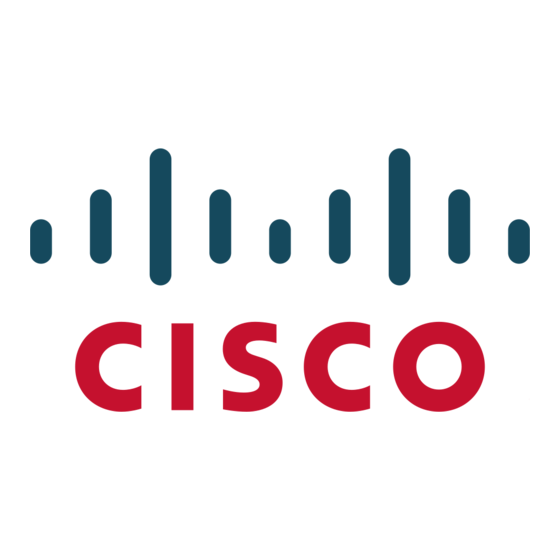Network Protocols
Network Protocols
Cisco Unified IP Phones support several industry-standard and Cisco network protocols required for voice
communication.
an overview of the network protocols that the Cisco Unified IP Phone 7931G supports.
Table 1: Supported Network Protocols on the Cisco Unified IP Phone
Networking Protocol
Bootstrap Protocol
(BootP)
Cisco Discovery Protocol
(CDP)
Cisco Peer-to-Peer
Distribution Protocol
(CPPDP)
Dynamic Host
Configuration Protocol
(DHCP)
Cisco Unified IP Phone 7931G Administration Guide for Cisco Unified Communications Manager 9.0 (SCCP
and SIP)
8
Table 1: Supported Network Protocols on the Cisco Unified IP Phone, on page 8
Purpose
BootP enables a network device such
as the Cisco Unified IP Phone to
discover certain startup information,
such as its IP address.
CDP is a device-discovery protocol that
runs on all Cisco-manufactured
equipment.
Using CDP, a device advertises its
existence to other devices and receives
information about other devices in the
network.
CPPDP is a Cisco proprietary protocol
that is used to form a peer-to-peer
hierarchy of devices. CPPDP also is
used to copy firmware or other files
from peer devices to neighboring
devices.
DHCP dynamically allocates and
assigns an IP address to network
devices.
DHCP enables you to connect an IP
phone into the network and have the
phone become operational without your
needing to manually assign an IP
address or to configure additional
network parameters.
Cisco Unified IP Phone 7931G
Usage notes
If you use BootP to assign IP addresses
to the Cisco Unified IP Phone, the
BOOTP Server option shows "Yes"
in the network configuration settings on
the phone.
The Cisco Unified IP Phone uses CDP
to communicate information such as
auxiliary VLAN ID, per port power
management details, and Quality of
Service (QoS) configuration information
with the Cisco Catalyst switch.
CPPDP is used by the Peer Firmware
Sharing feature.
DHCP is enabled by default. If disabled,
you must manually configure the IP
address, subnet mask, gateway, and a
TFTP server on each phone locally.
We recommend that you use DHCP
custom option 150. With this method,
you configure the TFTP server IP
address as the option value. For
additional supported DHCP
configurations, see the
Cisco Unified Communications Manager
System Guide, "Dynamic Host
Configuration Protocol" and
"Cisco TFTP" chapters.
provides

